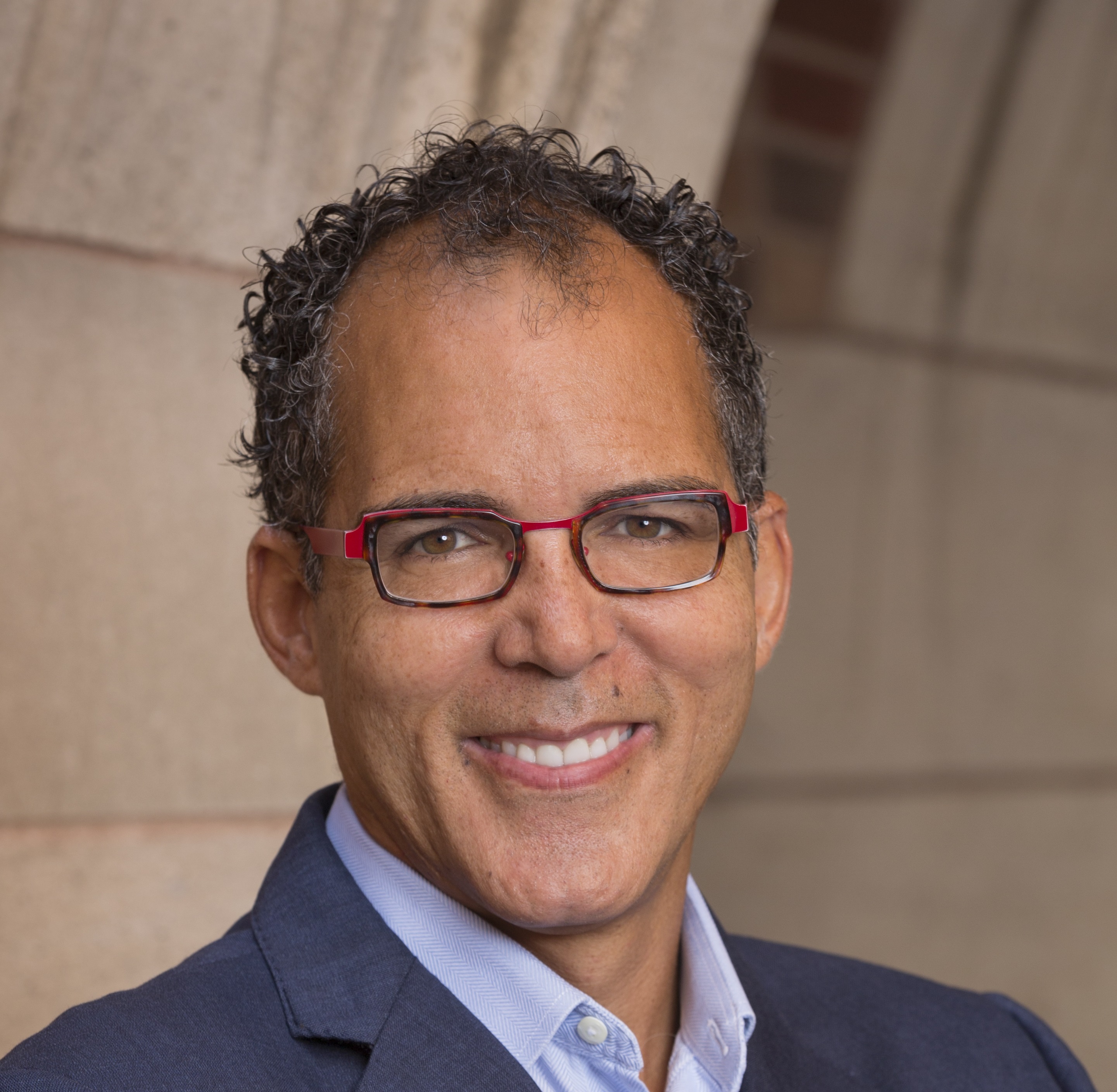
James Forman Jr.
James Forman Jr.
Former public defender James Forman Jr. is a leading critic of mass incarceration and its disproportionate impact on people of color. Forman graduated from Atlanta’s Roosevelt High School, Brown University, and Yale Law School. He worked as a law clerk for Justice Sandra Day O’Connor of the U.S. Supreme Court. After clerking, he joined the Public Defender Service in Washington, D.C., where for six years he represented juveniles and adults in felony and misdemeanor cases.
Maya Angelou School
Professor Forman loved being a public defender. But, he quickly became frustrated with the lack of education and job training opportunities for his clients. In 1997, he and David Domenici initiated the Maya Angelou Public Charter School. This school serves as an alternative institution for youth who had previously been arrested or dropped out.
A decade later, in 2007, Maya Angelou School expanded and agreed to run the school inside D.C.’s juvenile prison. That school had long been an abysmal failure. But now, it has been transformed under the leadership of the Maya Angelou staff. The court monitor overseeing D.C.’s juvenile system called the turnaround “extraordinary.”
Yale Law School
James Forman Jr. has been a faculty member at Yale Law School since 2011. He teaches Constitutional Law and a course titled Race, Class, and Punishment. He took his teaching behind prison walls, offering a seminar called Inside-Out Prison Exchange: Issues in Criminal Justice This seminar brought together, in the same classroom, 10 Yale Law students and 10 men incarcerated in a CT prison.
Publications
Professor Forman has written many law review articles. In addition, he has written op-eds and essays for The New York Times, The Atlantic, The New Republic, The Nation, and The Washington Post.
He received critical acclaim for his first book Locking Up Our Own: Crime and Punishment in Black America. This book explores how decisions made by black leaders, often with the best of intentions, contributed to disproportionately incarcerating black and brown people. A Washington Post bestseller, Locking Up Our Own was longlisted for the National Book Award. The New York Times, The Marshall Project, Publisher’s Weekly, and GQ named it a Best Book of the Year.
Reviewers have called the book “superb and shattering” (New York Times), “eloquent” and “sobering” (London Review of Books), and “moving, nuanced, and candid” (New York Review of Books). On Twitter, The New York Times book reviewer Jennifer Senior called Locking Up Our Own “the best book I’ve read this year.” The book was awarded the 2018 Pulitzer Prize in Nonfiction in April 2018.
Follow Professor Forman on Twitter.
| Book Cover | Details |
|---|---|
|
Trade Paperback
|
A vital reader on ending mass incarceration featuring advocates, experts, and formerly incarcerated people....Read More
|
|
Trade Paperback
|
An original and consequential argument about race, crime, and the law...Read More
|
Confronting Mass Incarceration
How did the United States come to lock up more of its citizens than any other nation on earth? What can we do to change that? In this memorable keynote, Yale Law Professor James Forman, Jr. diagnoses America’s criminal justice crisis with both data and human stories. He draws on his life experience as the child of a civil rights leader, public defender, and law professor. He also discusses research from his Pulitzer-prize winning book, Locking Up Our Own: Crime and Punishment in Black America. Although the topic is one of great seriousness, Forman leaves the audience hopeful, inspired, and armed with concrete ideas for how they themselves can contribute to change.
Expanding Access to the Legal Profession after SFFA v. Harvard/UNC
The legal profession has always been—and remains—a white-dominated institution. In 2020, only 5% of attorneys were Black—a number unchanged from a decade earlier. Now that the Supreme Court has curtailed race-based affirmative action in higher education, there is reason to fear that this number will decline.
In his talk, Professor Forman will argue that our current moment demands new and creative thinking about how to bring historically marginalized groups into the legal profession. As one example, he will discuss the Access to Law School Program that he helped found in 2020. Access to Law is an innovative student-led pipeline program that supports first-generation, low-income, and formerly incarcerated students from Connecticut who aspire to become lawyers.
James Forman Jr: Expanding Access to the Legal Profession after SFFA v. Harvard/UNC from Yale Law School on Vimeo.
James Forman has been awarded a Pulitzer Prize for Locking Up Our Own.
“What Happened When America Emptied Its Youth Prisons”
“Yale professor co-authors upcoming book on fighting back against mass incarceration”
“Professor Forman Delivers Inaugural J. Skelly Wright Lecture”
“The Superpredator Myth Did a Lot of Damage. Courts Are Beginning to See the Light.”
“Opinion | Justice sometimes needs a do-over”
“Every D.A. in America Should Open a Sentence Review Unit”
“How Black Leaders Unwittingly Contributed To The Era Of Mass Incarceration”
“‘Locking Up Our Own,’ What Led to Mass Incarceration of Black Men”
“Between the World and Me: 10,000 Years from Tomorrow”
“This Is Why South Carolina Raised the Confederate Flag in the First Place”
“The age of mass incarceration may actually be abating”
“‘Locking Up Our Own’ Details The Mass Incarceration Of Black Men”
“When Black America Was Pro-Police”
“Former public defender explains why we need to go further on fighting mass incarceration”
“‘Locking Up Our Own’ and ‘When Police Kill'”
“‘Demolish that lie’: James Forman Jr takes on Black Lives Matter backlash”
“How This Yale Professor Thinks Black Figures In The Justice System Can Do Better”
“A Prison Sentence Ends. But the Stigma Doesn’t.”
Locking Up Our Own has been named one of The New York Times’ 10 Best Books of 2017 and featured on the NYT Book Review’s “10 Books We Recommend This Week.”
Learn more about James on his faculty profile and follow James on Twitter.
“Thanks for such an inspiring message to our students and the professors as well. Several students pulled me aside throughout the day to say things like ‘eye opening’, ‘affirmed my direction’, ‘life changing’ and ‘why can’t we do more events like this’. Your presentation was a fantastic way to start the day. You truly inspired the faculty as well. We already have a meeting scheduled for Tuesday morning to discuss implementing a student led pipeline program. I’m sure I’ll be in touch for advice and to brainstorm.”
— St. John’s University“James was an excellent speaker who really connected with the audience on a personal level. He was professional, exceedingly kind, and generous. We thought he gave one of the best presentations we’ve had all year.”
— University of Southern Maine“James Forman Jr. didn’t fail to impress. Although the gravity of his work could have left the audience despondent…Forman gave encouraging, small ways to overcome the American addiction to punishment. Yet, he didn’t belittle the anguish by the African American community in the face of violent, drug-fueled crime, or the decisions made by empathetic local officials. He went out of his way to compliment both Democratic and Republican lawmakers. After his talk, he handled questions with grace and aplomb.”
— Lawrence University“James Forman, Jr. is a highly engaging speaker, combining hard data with moving and poignant anecdotes. I invited him to be the keynote speaker at a conference on children’s rights and juvenile justice in January 2016. He was outstanding.”
— Professor Kim Ford-Mazrui, University of Virginia School of Law“James Forman Jr. is an eloquent, engaging, and inspiring speaker. His remarks encourage both reflection and action.”
— Loni M. Bordoloi, Ph.D., Program Director of the Teagle Foundation“James Forman’s convocation address at Macalester was thoroughly compelling: relaxed, lively, yet filled with matters of substance and seriousness. He speaks to the subjects of most importance in our times and does so in a way that is personal and persuasive. I would invite him back to speak again at Macalester in an instant.”
— Brian Rosenberg, President of Macalester College“James Forman’s expert and profoundly humanistic presentation on the roots of racialized mass incarceration led his appreciative audience to a deeper understanding of the roots of the problem and what it will take to fix it.”
— Tim Ready, Director of Lewis Walker Institute for the Study of Race and Ethnic Relations, Western Michigan University“James Forman, Jr. is an incredible speaker—his breadth of knowledge of the criminal justice system both past and present is quite deep. The evolution of the system from 200,000 prisoners in the 1970s to the current 2.2-million today is shocking but understandable when Professor Forman explains it. It is very easy to see how we dug this hole for ourselves in the U.S. and how we can dig our way out if we want to. Forman knows all the players in this tragic issue and he skillfully avoids demonizing any of them, which would be oh so easy to do. He’s an incredible dynamic and engaging speaker, at the end of the event there wasn’t an adult or student in the room who didn’t wish he was our teacher.”
— Sharon La Cruise, Vice President of Admissions, Programs & Resident Life, International HouseFeedback for Changing the Odds Conference, Momentous Institute
“This session was tremendous in presenting historical and current information on mass incarceration and the struggles and facts that African Americans faced. The speaker was certainly passionate and an expert on the topic and I enjoyed the personal connections that emphasized his stance. I love the applicable pieces that we can take home with us personally and with our work!”
“I really appreciated the encouragement to step out of our zone of discomfort towards what we perceive as an injustice system & become those that help contribute towards a more just system.”
“I really enjoyed your session and feel like I have more information and some new language to help speak to the challenges ahead of us. The call to action—to do what we are good at to help was important and has given me pause. Thank you!”
“Very powerful, and presented in a way that we all left challenged to take ownership for our actions related to this.”
Praise for Dismantling Mass Incarceration
“You won’t find a better collection of diverse perspectives regarding how to respond to the crisis of mass incarceration—ranging from reform to abolition—than what’s offered here.”
— Michelle Alexander, author of The New Jim Crow“This extraordinary collection by our nation’s most brilliant thinkers on punishment, policing and prisons is exactly the blueprint for making a just society that we have all been waiting for and desperately need.”
— Heather Ann Thompson, Pulitzer-Prize-winning author of Blood in the Water“Criticizing the criminal justice system is easy; prescribing how to reform it in realistic and useable ways is the real challenge. This book faces that challenge head-on. It’s a must-read for reformers, scholars, and everyone who cares about fixing one of the most pernicious problems in America today.”
— David Cole, National Legal Director of the ACLU and author of No Equal Justice: Race and Class in the American Criminal Justice System“This book is a must read for anyone fighting for justice, equality, and an end to mass incarceration.”
— David Ayala, executive director of the Formerly Incarcerated, Convicted People and Families Movement (FICPFM)Praise for Locking Up Our Own
“Superb and shattering . . . ‘How did a majority black jurisdiction end up incarcerating so many of its own?’ This is the exceptionally delicate question that [Forman] tries to answer, with exemplary nuance, over the course of his book. His approach is compassionate . . . It’s [Forman’s] six years as a public defender that seem most relevant to the sensibility of this book—and that give it a special halo, setting it apart.”
— Jennifer Senior, The New York Times“The big spring book to argue about . . . Forman can catalogue more dysfunctional systems at close range than The Wire did.”
— Boris Kachka, Vulture“A sharp analysis . . . Forman shows how our nation has gotten to the point where so many citizens—primarily blacks—are imprisoned . . . Writing with authority and compassion, the author tells many vivid stories of the human toll taken by harsh criminal justice policies. He also asks provocative questions . . . Certain to stir debate, this book offers an important new perspective on the ongoing proliferation of America’s ‘punishment binge.’”
— Kirkus Reviews (Starred Review)














